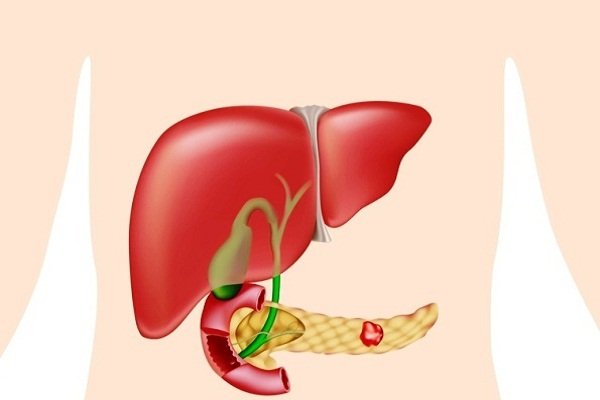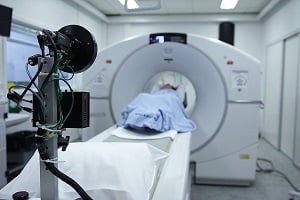Pancreatic Cancer Survival Rate: Current Research
- Updated on: Jul 24, 2024
- 3 min Read
- Published on Dec 14, 2018


Pancreatic cancer survival rate
A recent survey in England for most recent survival statistics hints that about only 7% of patients with pancreatic cancer survive for five years or more. The study reveals that pancreatic cancer is funded with only less than 3% of the annual UK cancer research budget when more 50% of pancreatic cancer patients are being diagnosed of advanced stage pancreatic cancer in the UK. Diana Jupp, Chief Executive of Pancreatic Cancer UK, stated that there is a shocking lack of progress for pancreatic cancer research.
There is a need for early diagnosis of pancreatic cancer for saving the life of patients. If pancreatic cancer is not diagnosed at an early stage, it can extend to the nearby organs and blood vessels. It is also observed that people with diabetes have a greater risk of developing pancreatic cancer. This was proven correct when a study conducted on African Americans and Latinos showed that the onset diabetes was associated with greater risk of pancreatic cancer. To such people, who are at an elevated risk, we suggest that they should get routine checkups and follow-ups. This will help in the diagnosis of any such deadly disease at a very early stage for an effective treatment.
Another set of statistical data reveals that the median survival for untreated advanced pancreatic cancer is about 3-4 months, but with proper diagnosis and improved treatment strategies, it increases to about eight months and more. Surgery is a good treatment option for many patients during advanced stage pancreatic cancer.
A concise study on pancreatic cancer survival rate
Pancreatic cancer is supposedly the fourth leading cause of cancer-related deaths in the United States, fifth in European Union and seventh leading cause of cancer-associated deaths in China. Studies suggest that the rate of occurrence of pancreatic (head) cancer was about 5.5 per 100,000 people and rate for pancreatic (body/tail) cancers was about 1.7 per 100,000, in the year 1973 to 2002.
Researchers explain that 5-year survival rate means the approximate percentage of people who have survived the disease for about 5 years or more after being diagnosed with cancer. According to the American Cancer Society, for all stages of pancreatic cancer, annual relative survival rate is estimated to be about 20%, and the five-year rate is expected to be less than 7%. Although this data do not clearly show the exact picture of the situation all over the world, but at least give an overview of the condition to stay alert.
A study conducted in Shanghai, China showed that overall incidence rate was low among pancreatic cancer patients of Shanghai residency. This was only possible with the help of early detection, but, we still need improved treatment strategies for better prognosis for the pancreatic cancer.
Another study describes that the incidence of pancreatic cancer also depends upon gender or sex and geographical variations. In this study, it was found that the risk of developing pancreatic cancer in men was higher in Armenia, Czech Republic, Slovakia and Hungary, Japan and Lithuania and was lowest in Pakistan and Guinea. Same analysis was done for women and it was found that women in Northern America, Western and Northern Europe, Denmark, Finland, Australia or New Zealand and Hungary have greater chances of developing pancreatic cancer. Also, the estimate suggests that chances of pancreatic cancer in women were found lowest in Middle Africa, Tanzania, Guinea, Cameroon, and Pakistan.
Such surveys and studies act as a beneficial tool for diagnosing patients in specific areas and also to improve awareness in general.
Do you know how pancreatic cancer progresses: Recent years outlook
If pancreatic cancer is in its first stage, the tumor is only in the pancreas and the five-year survival rate is expected to be more than 30% whereas this rate falls rapidly to about 13% when cancer metastasizes to the nearby lymph nodes outside the pancreas. Final stage pancreatic cancer patient has minimal chances of survival, of about 2%.
An estimate suggests that since 2014 till present, the five-year survival rate for pancreatic cancer patients increased from about 7 to 10%. This indicates that researchers are working hard to find an improved and better treatment option for pancreatic cancer patients. Pancreatic Cancer Action Network recommends various ways to reduce the risk of pancreatic cancer and to treat it effectively, such as molecular profiling, which is recommended for effective treatment, clinical trials during diagnosis, etc.
It is always better to provide support and care to the patient and to not ignore early signs and symptoms for an early diagnosis. Early diagnosis helps in treating the patient with increased chances of survival. If you have diabetes or any pancreas related disorder, we suggest you to get regular checkups.












